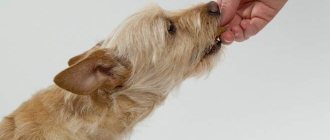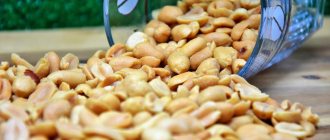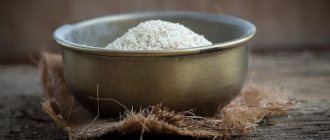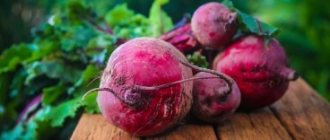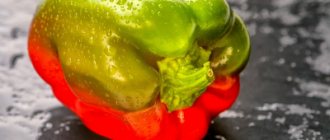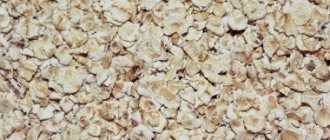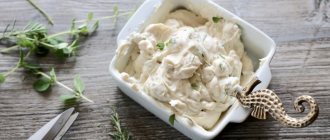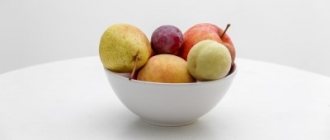But are carrots as good for dogs as they are for people?
I know my dog loves store-bought dog treats, but I also know that when my dog gobbles down those treats, it's like me eating a whole big bag of high-calorie chips! But dog treats, frankly speaking, are not cheap. And I don’t know their contents. You can write anything on the package.
And I thought that, firstly, treating my Doberman with store-bought treats every day is harmful to his health, and secondly, it’s costly for my pocket.
So I started looking for a healthy and inexpensive alternative to store-bought dog treats.
I read a lot about healthy vegetables for dogs that I could include in his diet, such as carrots.
I have already written that dogs can be given apples and bananas, and that under no circumstances should you give onions and garlic, which are poisonous to dogs. But what do you and I know about carrots?
In what form is it better to give vegetables to your pet: methods of preparation
Knowing how to feed a pet correctly and in what form to give the product, the owner will be able to protect the animal from unpleasant consequences and improve its health.
Raw carrots
Veterinarians say that plant-based fiber is a heavy food for dogs, which is difficult to digest, so it is better to give them boiled vegetables. Raw carrots are easily digestible if pureed or chopped in a blender. However, often animals do not want to eat such mush. The hard root vegetable is recommended for brushing teeth and massaging gums.
Raw carrots are a heavy food for dogs.
Before giving the product to your pet, you need to wash it, remove greens and clean rotten areas (if any). You can leave the peel, because... it also contains many nutrients.
For large breeds, it is better to give the root vegetable unchopped; for small dogs, cut it into circles or bars.
Boiled
Boiled vegetables are easier to digest and help cope with gastrointestinal diseases.
The main advantage of the poached product is that provitamin A is absorbed almost 100%. But there is no need to completely exclude raw root vegetables from the diet; doctors advise alternating them. Cook or simmer the product for 7-10 minutes. Prepare carrots as whole roots or cut into pieces. When stewing, you can add a few drops of vegetable oil. If an animal suffers from diarrhea or gastrointestinal disease, then it is better for him to prepare carrot soup. It will require:
- 1 kg of peeled and washed root vegetables;
- 1-2 liters of water;
- 1 tsp salt.
Boiled carrots are easier to digest.
Place the vegetable in a container of water. Place over high heat, bring to a boil and leave to simmer for 30-40 minutes until the root vegetable softens well. You need to add water periodically. After cooking, knead the carrots and add salt to the dish before feeding.
Dried
The dried root vegetable is given as food to protect pets from parasites.
To do this, the product is added to food in small quantities every day. You can buy it in pet stores. Dried carrots from the supermarket should not be given to your pet, because... Various chemicals are often used to improve the appearance. Such a product can harm the health of the animal. It is better to prepare the dried root vegetable yourself. To do this, the vegetable is washed well, dried and chopped. The finished product should be stored in a glass container or fabric bag. An oven is most often used for drying.
Tops and leaves
Dogs are allowed to be given both carrots and carrot leaves. Greens have a lot of nutrients, in some ways they even surpass the root vegetable itself, for example, it has 11% more calcium. Carrot tops contain a high concentration of selenium, which is necessary to prevent the development of malignant tumors. Greens are allowed to be included in the dog’s diet in any form. If the animal refuses to eat the leaves, it is recommended to boil them for 5-7 minutes to get rid of slight bitterness.
The tops and leaves contain many nutrients.
So what do you and I know about carrots?
Here are a whole bunch of questions that arose in my head when I decided to treat my Doberman Lucas with carrots.
- Yes, we know that carrots are a source of health for people, but is it harmful for my dog?
—Are carrots potentially poisonous to dogs?
— If I feed my dog carrots, should they be cooked or raw?
Do dogs like carrots, or will I have to introduce them into his diet through carrot cake or add small pieces to his dry food?
I found all the answers to these questions and will be happy to share them with you.
Is it possible to give to everyone?
But carrots can cause harm to the body if given to pets uncontrollably. And before the eyes of the owner, metamorphosis can occur with the animal. Do you have a snow-white dog? By regularly giving him carrots, you can watch his luxurious coat turn yellow. The reason for this is the high content of carotene (yellow pigment) in the root vegetable. Frequent consumption of carrots causes so-called “carotene jaundice,” in which the skin and sclera of the eyes acquire a yellowish tint. This is how an overdose of vitamin A manifests itself.
By restoring the intestinal microflora, carrots can cause intestinal upset and cause diarrhea in some animals. And dogs suffering from peptic ulcers are absolutely not allowed to eat carrots! Contraindications are also:
- inflammation of the small intestine;
- gastritis;
- the presence of kidney stones.
Carrots are a strong allergen, and skin manifestations in the form of rashes and hives are frequent manifestations of the body’s negative reaction to the vegetable. It is much more dangerous when angioedema (otherwise known as Quincke's edema) develops, breathing becomes impaired, and the nasopharynx swells. Therefore, the first time you give carrots to your pet, you should be extremely careful and at the first symptoms of an allergy, you should immediately contact a veterinarian.
So, can dogs eat carrots?
Yes! Your dog can eat carrots as much as he wants, as long as he doesn't eat too many at one time.
As with any food outside of their normal diet, dogs may experience digestive problems such as vomiting or diarrhea if the portion is too large for one meal.
It also turns out that carrots are actually very beneficial for dogs. One of the benefits of raw carrots is that when your dog chews them, it cleans the dog's teeth, which can help prevent plaque buildup.
Some veterinarians even recommend cold carrots for teething puppies as a way to ease teething discomfort, and large frozen carrots make cheap, edible chew toys.
By the way, properly prepared carrots bring even more benefits to the dog, but more on that below.
Dried
Dried carrots are useful for dogs due to their preventive effect against worms. To do this, you need to give your pet a little every day, adding it to porridge. Dried carrots are available in pet stores, as a dietary supplement, or even as pet chips.
But ordinary dried carrots from supermarkets cannot be offered to animals: specific substances are often added to them to improve their presentation. It is better for dogs not to eat them. It is better to dry the carrots yourself. Even if you don’t have a grown one, drying a store-bought one is still better than purchasing a ready-made dried product.
To dry, carrots are thoroughly washed, dried and chopped - in a mixer or on a grater. You can dry it in the oven or on any flat surface in a warm, well-ventilated room, and store it in a glass container or linen bag.
What are the health benefits of carrots for dogs?
Carrots are just as good for dogs as they are for people, with the same vitamins and minerals benefiting their systems as they do ours.
According to organic facts, carrots contain beta-carotene, which is associated with a reduced risk of several types of cancer.
Additionally, this root vegetable is a good source of antioxidants. In addition, carrots are rich in vitamin A, vitamin C, vitamin K, vitamin B8, pantothenic acid, folic acid, potassium, iron, copper, potassium and manganese.
Vitamin C and the antiseptic/antibacterial properties of carrots strengthen the immune system, helping the body fight disease.
Rules for introducing into the diet
Despite the high concentration of microelements in carrots, the pet’s body will not be able to extract all the beneficial substances. Therefore, you should not overfeed your dog with root vegetables, because... the risk of disruption of the gastrointestinal tract increases.
Dogs of different breeds
Carrots are good for all dogs, regardless of breed. The only prohibition on introducing a vegetable into a pet’s menu is individual intolerance. Most often, representatives of breeds such as spaniels, Labradors, etc. encounter this disease. In this case, it is necessary to remove the vegetable from the menu.
Spaniels often develop individual intolerance to carrots.
Pregnant and lactating
For bitches during the period of bearing and feeding puppies, carrots will help replenish the lack of vitamins and support the immune system. The root vegetable is also used as an antibacterial agent. Even if the animal has not eaten the vegetable before, you should try to introduce it into the diet. During this period, taste preferences change and the pet can eat the product with appetite.
Animals of different ages
Carrots are allowed to be given after 2 months. When a product is first introduced into the diet, it is necessary to monitor the body’s reaction and, if signs of an allergy are detected, remove it from the menu. If there are no negative symptoms, then the product must be crushed or pureed and fed daily in small quantities.
Up to a year, the share of vegetables in the puppy’s menu should be 50%, with the majority being orange vegetables.
At 3-7 months, it is recommended to give small, unpeeled carrots as a gnawing toy to relieve the itching that occurs when changing teeth, and to rock baby fangs, making it easier for them to fall out.
Ingredients:
1 cup natural creamy peanut butter
¾ cup skim milk
1 large egg or ¼ cup unsweetened applesauce
1 large carrot, chopped (or about 8 small carrots), about 2/3 cup chopped
2 ¼ cups whole wheat flour
1 tablespoon. baking powder
1/3 cup rolled oats (whole grain or instant oats)
Since my dog loves apples as much as he loves carrots, I plan on making both!
If you found this article helpful or interesting, please SHARE with friends or family who also have dogs! They would probably love the recipes!
Precautions and possible hazards
A dog cannot be poisoned by carrots; on the contrary, it is suggested that the vegetable be fed to animals that are recovering from intoxication.
However, if your dog chews dirty root vegetables from the garden or eats unwashed food from the store, he may suffer from the chemicals used for processing. When intoxicated with pesticides, the dog becomes lethargic, refuses food, and constantly vomits. You should not self-medicate, since without diagnosis and professional examination it is difficult to determine what caused the poisoning of the body.
Caution: urolithiasis
Owners of dogs with oxalate and urate type urolithiasis should be more careful than others when it comes to choosing vegetables. Dogs with urolithiasis should not be given vegetables high in oxalates and oxalic acid, since these substances are excreted in the urine and can form stones.
Stop list for oxalate urolithiasis: beets, carrots, green beans and other legumes, zucchini, broccoli
Possible: pumpkin
What to do if an animal has eaten a prohibited product?
- The animal must be taken to a veterinarian.
- As first aid, you need to give activated carbon diluted in water at the rate of 1 tablet per 1 kg of body weight. The animal must be offered something to drink. This will help remove toxic substances from the body and prevent them from entering the blood.
- If possible, induce vomiting.
This can be done using hydrogen peroxide or table salt, which is diluted in water in a 1:1 ratio. The solution is administered with a syringe without a needle through the corner of the mouth (1 ml per 1 kg of weight). If vomiting does not occur after 5 minutes, repeat the procedure. In this case, the condition of the animal must be taken into account. If there is excessive salivation, convulsions, convulsions, difficulty breathing or loss of consciousness, vomiting should not be induced. This is also not done if more than 1.5 hours have passed since consuming a dangerous product.
Carrots are a healthy product that will help improve animal health . But when introducing it into food, certain standards must be adhered to. It is also necessary to monitor the animal’s body’s reaction to this root vegetable. If signs of an allergic reaction appear, it should be discarded.
If you find an error, please select a piece of text and press Ctrl+Enter.
Featured Posts
Tinatin
- Aksakal
- Users.
- 4 361
- 10,708 publications
- Female gender
- Moscow city
Tell me, who knows, can I have raw carrots?? Our girl really loved them. Both whole and grated. Sometimes adding carrots is the only way to feed them by drying them.. Oh how..
And if possible, how much?
Character
- Aksakal
- Users.
- 7 208
- 13,239 publications
- Female gender
- Moscow city
I let the carrots be chewed like this, outside of feeding, but not often; she rather chews it, but does not eat it. We also have the wrong relationship with drying - until you “spit” it won’t eat. I don’t even care about a teaspoon of buckwheat... Oh, just don’t throw rotten slippers at me!
Mascot
- Aksakal
- Users.
- 6 409
- 6,943 publications
- Gender: Undecided
- City: St. Petersburg, North
carrots can be given to improve the gastrointestinal tract's peristalsis, but not very much (I rub about half a carrot on the face) it is not digested by dogs.. therefore, if you see this product at the exit in exactly the same rubbed state as it was given, then you have definitely gone too far

